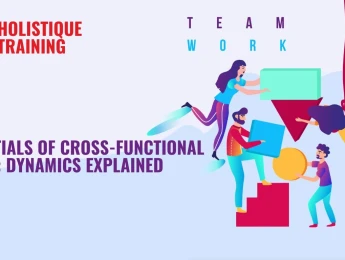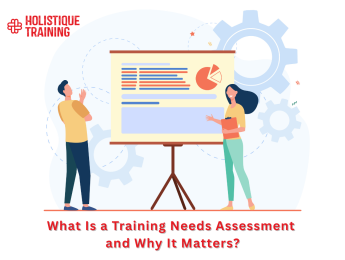Introduction
Learning finance and accounting is fundamental for anyone looking to understand the financial health and operations of a business. It provides the skills needed to analyze financial statements, manage budgets, and make informed financial decisions. This knowledge is crucial for roles in financial planning, auditing, investment management, and corporate finance. Mastering these principles enables individuals to contribute to strategic planning, ensure regulatory compliance, and drive business success through sound financial practices.
1. Chartered Financial Analyst (CFA) Program
Summary: The CFA Program is a professional credential offered internationally by the CFA Institute, aimed at investment and finance professionals. It covers topics such as ethics, quantitative methods, economics, financial reporting, and analysis, corporate finance, portfolio management, and more.
Duration: Typically 3 years to complete all three levels.
Language: English
Level: Advanced/Professional
What does a CFA Program teach you?
- In-depth knowledge of investment management and financial analysis.
- Strong understanding of ethical and professional standards.
- Skills to conduct comprehensive financial analysis and portfolio management.
Who should take the CFA Program?
- Aspiring finance professionals and investment analysts.
- Current finance professionals aiming to enhance their credentials.
- Those looking to advance their careers in investment management and analysis.
Why should take the CFA Program?
- Recognized globally as a top credential for investment professionals.
- Enhances job prospects and career growth in the finance industry.
- Provides a comprehensive understanding of finance and investment management.
Website: CFA Institute
2. Certified Public Accountant (CPA) Course
Summary: The CPA course is a professional accounting designation granted by the American Institute of Certified Public Accountants (AICPA) to individuals who pass the Uniform CPA Examination and meet additional state education and experience requirements.
Duration: Typically 1-2 years, depending on study schedule and pace.
Language: English
Level: Advanced/Professional
What does a CPA Course teach you?
- Principles of accounting, auditing, and financial reporting.
- Skills in tax preparation, financial analysis, and regulatory compliance.
- Knowledge to perform financial audits and ensure compliance with regulations.
Who should take the CPA Course?
- Aspiring accountants and auditors.
- Finance professionals seeking to enhance their credentials.
- Individuals aiming for senior roles in accounting and finance.
Why should take the CPA Course?
- Widely recognized and respected accounting credential.
- Opens doors to higher-level positions in accounting and finance.
- Provides in-depth knowledge and skills necessary for accounting and auditing.
Website: AICPA
3. ACCA Qualification
Summary: The ACCA (Association of Chartered Certified Accountants) qualification is a global professional accounting qualification that provides students with skills and knowledge relevant to any business.
Duration: 2-3 years, depending on prior qualifications and study schedule.
Language: English
Level: Intermediate/Advanced
What does an ACCA Qualification teach you?
- Comprehensive understanding of financial and management accounting.
- Skills in financial management, performance management, and taxation.
- Knowledge in audit and assurance, law, and ethics.
Who should take the ACCA Qualification?
- Individuals starting a career in accounting and finance.
- Professionals seeking a globally recognized accounting qualification.
- Those aiming to gain expertise in financial and management accounting.
Why should take the ACCA Qualification?
- Recognized worldwide and enhances career prospects in accounting and finance.
- Provides a comprehensive foundation in accounting principles and practices.
- Offers flexibility in terms of study and exam schedules.
Website: ACCA Global
4. Certified Management Accountant (CMA)
Summary: The CMA certification is offered by the Institute of Management Accountants (IMA) and focuses on financial management and management accounting.
Duration: Typically 6-12 months for each of the two exam parts.
Language: English
Level: Intermediate/Advanced
What does a CMA Course teach you?
- Financial planning, analysis, control, and decision support.
- Skills in strategic management and performance management.
- Knowledge in risk management and internal controls.
Who should take the CMA Course?
- Management accountants and financial managers.
- Finance professionals seeking to enhance their management accounting skills.
- Individuals aiming for leadership roles in financial management.
Why should take the CMA Course?
- Enhances expertise in management accounting and financial management.
- Recognized credential that can lead to career advancement.
- Provides skills necessary for strategic decision-making and financial planning.
Website: IMA Global
5. Diploma in Accounting and Finance (Cambridge International College)
Summary: This diploma course provides comprehensive training in accounting and finance principles and practices, covering topics like financial accounting, management accounting, and business finance.
Duration: 1 year
Language: English
Level: Beginner/Intermediate
What does a Diploma in Accounting and Finance teach you?
- Fundamentals of financial and management accounting.
- Skills in preparing financial statements and management reports.
- Knowledge in business finance and financial decision-making.
Who should take the Diploma in Accounting and Finance?
- Individuals starting their careers in accounting and finance.
- Professionals seeking to gain foundational knowledge in accounting.
- Those looking to pursue further studies in accounting and finance.
Why should take the Diploma in Accounting and Finance?
- Provides a solid foundation in accounting and finance principles.
- Enhances career prospects in the finance and accounting industry.
- Prepares students for advanced studies and professional qualifications.
Website: Cambridge International College
6. Financial Modeling and Valuation Analyst (FMVA) Certification
Summary: The FMVA certification, offered by the Corporate Finance Institute (CFI), focuses on financial modeling, valuation, and analysis, providing practical skills for finance professionals.
Duration: 6 months (self-paced)
Language: English
Level: Intermediate/Advanced
What does an FMVA Certification teach you?
- Skills in financial modeling, valuation, and financial analysis.
- Knowledge in corporate finance, budgeting, and forecasting.
- Techniques for creating complex financial models and performing valuations.
Who should take the FMVA Certification?
- Finance professionals seeking to enhance their financial modeling skills.
- Individuals aiming for careers in investment banking, equity research, and financial analysis.
- Those looking to gain practical skills in financial analysis and valuation.
Why should take the FMVA Certification?
- Provides hands-on experience in financial modeling and valuation.
- Recognized certification that enhances career prospects in finance.
- Equips students with practical skills necessary for advanced financial analysis.
Website: Corporate Finance Institute
7. Diploma in Financial Management (Edinburgh Business School)
Summary: This diploma course, offered by Edinburgh Business School, covers various aspects of financial management, including corporate finance, investment management, and financial strategy.
Duration: 1 year
Language: English
Level: Intermediate/Advanced
What does a Diploma in Financial Management teach you?
- Comprehensive understanding of financial management principles.
- Skills in corporate finance, investment management, and financial strategy.
- Knowledge in financial decision-making and risk management.
Who should take the Diploma in Financial Management?
- Finance professionals seeking to enhance their financial management skills.
- Individuals aiming for leadership roles in finance and investment management.
- Those looking to gain advanced knowledge in financial management.
Why should take the Diploma in Financial Management?
- Provides in-depth knowledge of financial management and strategy.
- Enhances career prospects in finance and investment management.
- Prepares students for advanced roles in financial decision-making and management.
Website: Edinburgh Business School
8. MBA Accounting and Finance (Holistique Training)
Summary: The course covers income statements, balance sheets, cost-effective processes, risk identification, budgeting, financial recovery, governance, motivation, benchmarking with Baldrige criteria, and aligning accounting decisions with business goals.
Duration: 5 days
Language: English
Level: Intermediate/Advanced
What does an MBA Accounting and Finance Course teach you?
- Develop a working knowledge of income statements and balance sheets.
- Identify cost-effective processes and potential risk areas.
- Create and implement budgeting processes, understand financial recovery strategies, and governance mechanisms.
- Use Baldrige performance criteria for benchmarking success and align accounting decisions with business goals.
Who should take the MBA Accounting and Finance Course?
- Mid-level to senior finance professionals looking to deepen their accounting knowledge.
- Managers and executives aiming to enhance their financial decision-making skills.
- Individuals seeking to align financial strategies with overall business objectives.
Why should take the MBA Accounting and Finance Course?
- Gain advanced skills in financial analysis and strategic budgeting.
- Enhance ability to identify risks and implement cost-effective processes.
- Improve capability to lead financial recovery efforts and align financial decisions with business goals for competitive success.
Website: Holistique Training
Table: Summary of Best Accounting and Finance Course in Dubai
Course Name | Duration | Language | Level |
CFA Program | 3 years | English | Advanced/Professional |
CPA Course | 1-2 years | English | Advanced/Professional |
ACCA Qualification | 2-3 years | English | Intermediate/Advanced |
CMA Certification | 6-12 months | English | Intermediate/Advanced |
Diploma in Accounting and Finance | 1 year | English | Beginner/Intermediate |
FMVA Certification | 6 months | English | Intermediate/Advanced |
Diploma in Financial Management | 1 year | English | Intermediate/Advanced |
MBA Accounting and Finance | 5 days | English | Intermediate/Advanced |

























